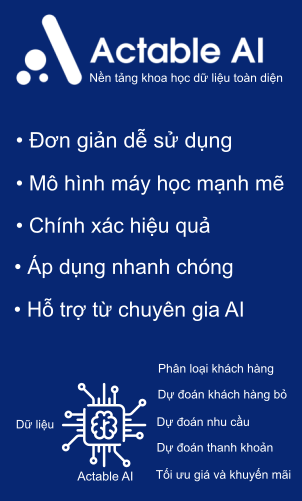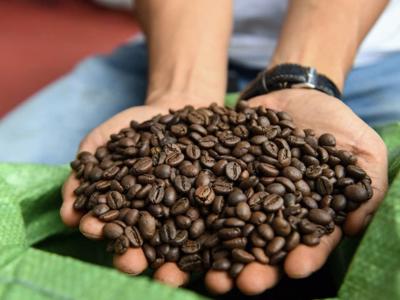Alliance of Bioversity International and International Center for Tropical Agriculture (CIAT) meet with MARD
Meeting re-affirms partnership in agrifood systems transformation in Vietnam
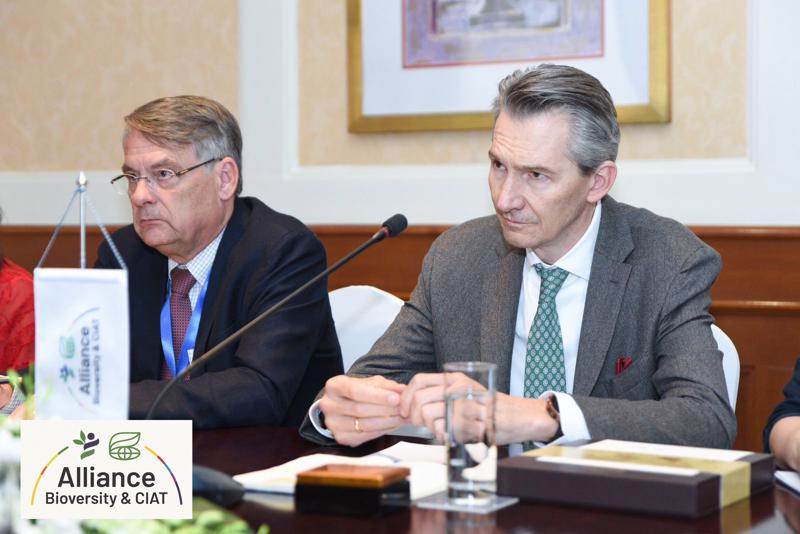
The Alliance of Bioversity International and the International Center for Tropical Agriculture (CIAT) will sit down with the Ministry of Agriculture and Rural Development (MARD) in Hanoi on April 25 to discuss how the Alliance and the Consultative Group on International Agricultural Research (CGIAR) aligns its research agenda with Vietnam’s priorities in agriculture and food systems transformation.
Mr. Juan Lucas Restrepo, Director General of the Alliance and Global Director for Partnerships and Advocacy at CGIAR, and Mr. Stephan Weise, Managing Director for Asia of the Alliance, will meet with Deputy Minister of Agriculture and Rural Development Phung Duc Tien to present how the Alliance has made an impact in the country over the last five years and opened up opportunities moving forward. These include delivering results in the areas of food environment and consumer behavior, tropical forages, cassava, digital agriculture, agro-ecosystems and sustainable landscapes, climate action, and biodiversity of food and agriculture.
Cross-cutting contributions
Through various engagements, the Alliance has contributed to supporting national agriculture and rural development by identifying solutions to bridge gaps in food systems issues for socio-economic development around Vietnam. This work touches on national action plans related to Zero Hunger and Food Systems Transformation.
“Our longstanding cooperative work continues to deliver integrated solutions at various scale in the country,” said Mr. Weise. “The partnership with MARD allows us to reach stakeholders and changemakers and build capacity to strengthen the agrifood sector in the country.”
From seed systems, diets and nutrition, and crop breeding to livestock and forages while tackling climate challenges, the Alliance in Vietnam stays abreast of emerging innovations to support communities and livelihoods and influence local and national research and development and policy.
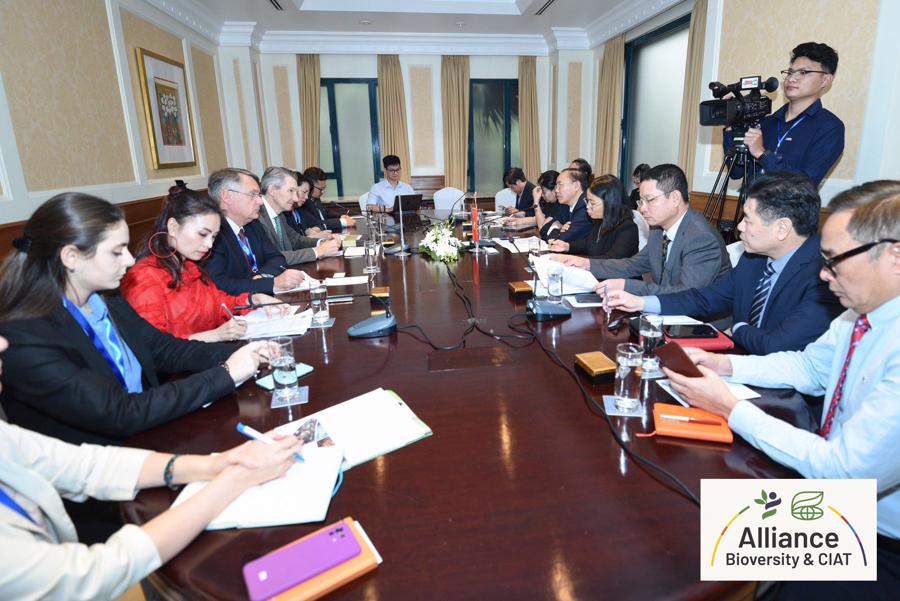
“We are proud of our cooperation with MARD and other partners in Vietnam,” said Mr. Restrepo. “Through our partnership we have been able to identify suitable pathways to accelerate food systems transformation in the country, based on the geographical, social, political and economic context.”
The severity and extent to which climate change, biodiversity loss, and hunger are affecting different geographical areas varies enormously. Solutions to these challenges depend on the local context, and as such need to be tailored to it and co-created with national research systems, universities, and most importantly, with the end-users: farmers.
“This is very clear in our mind and is why we have been working with regional and national stakeholders, including with National Agricultural Research and Innovation Systems, across regions to identify food systems transformation pathways,” Mr. Restrepo said.
Multi-stakeholder initiatives
Banking on longstanding work in Vietnam, the Alliance and MARD will carry on working together on improving agrifood systems in the country while working with other government agencies, academia, and non-profit organizations.
In continuing its contributions in the country, the Alliance is supporting MARD in implementing the National Action Plan for Food Systems Transformation, linking it to the overall work on the ASEAN-CGIAR regional program, while implementing the CGIAR Initiative on Sustainable Healthy Diets through Food Systems Transformation (SHiFT) to improve diets among vulnerable populations in Vietnam. In the same vein, the Alliance is also working on other CGIAR Initiatives in Vietnam, particularly on Sustainable Animal Productivity (SAPLING), Nature-Positive Solutions, Plant Health, and Asian-Mega Deltas, to build livelihoods and environmental resilience in the country.
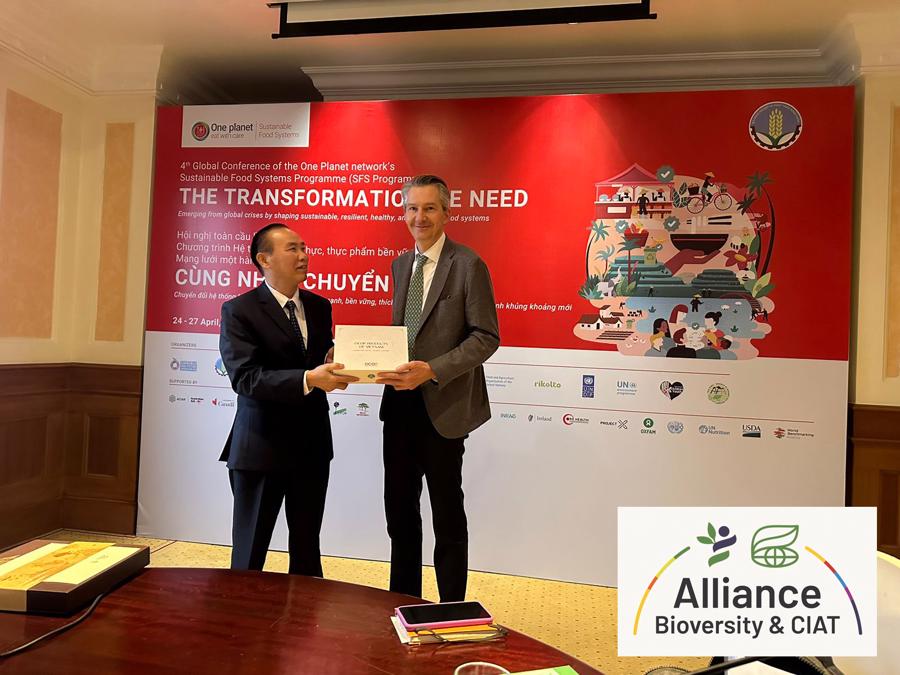
Through public-private partnerships, the Alliance is also able to build a portfolio in supporting key agricultural commodities, from cassava to coffee, tea, and black pepper in Vietnam. This work involves genetic innovation, agro-ecology, and digital agriculture tools to continue to safeguard agricultural and economic development in the country.
“We are happy to have this opportunity to present the work that we have done in the last five years to contribute to food systems transformation in Vietnam and define pathways for the future with MARD,” said Mr. Restrepo. “MARD remains one of our key partners in ensuring that we are conducting relevant and timely research to address issues in agriculture and food systems.”
Finally, Mr. Weise acknowledged the support of the Ministry of Foreign Affairs through the People’s Aid Coordinating Committee (PACCOM) in ensuring the efficient delivery of the Alliance’s work in Vietnam.
About the Alliance: The Alliance of Bioversity International and the International Center for Tropical Agriculture (CIAT) delivers research-based solutions that harness agricultural biodiversity and sustainably transform food systems to improve people’s lives. Alliance solutions address the global crises of malnutrition, climate change, biodiversity loss, and environmental degradation.
The Alliance is part of CGIAR, a global research partnership for a food-secure future.
See https://alliancebioversityciat.org/ or https://www.cgiar.org/







